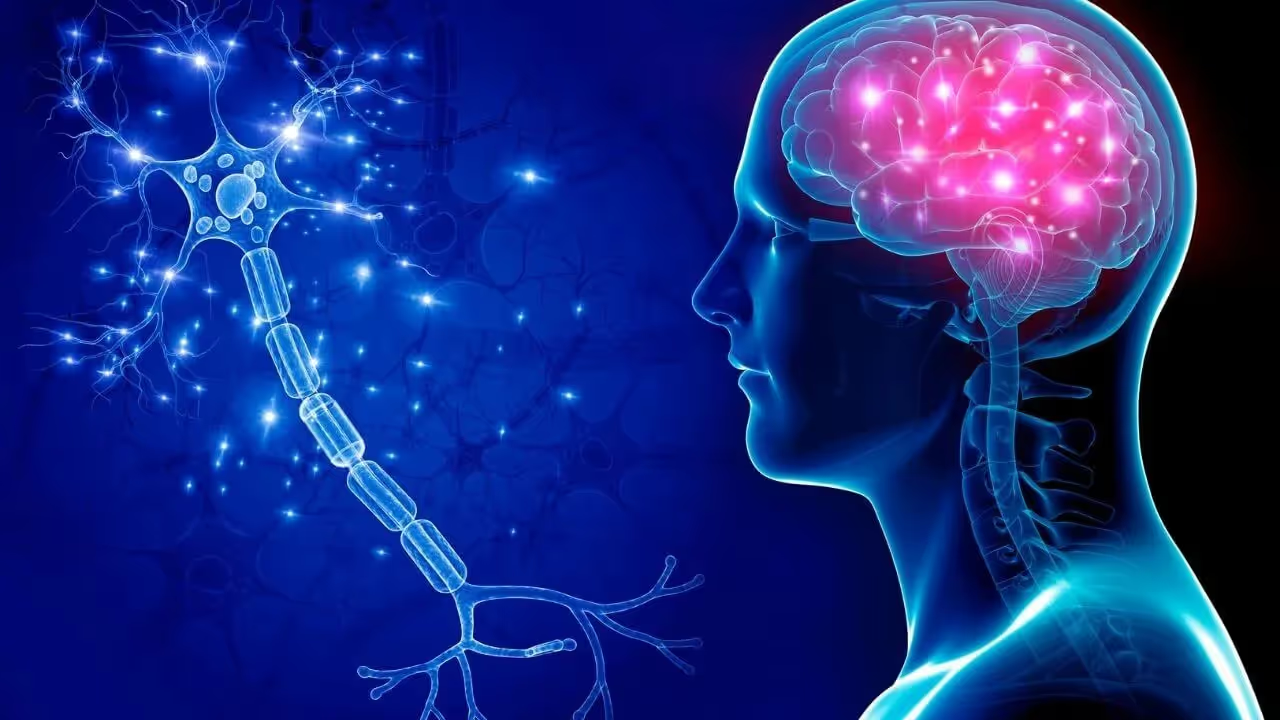Sex, Trauma, and the Brain: What Causes Sex Addiction?


You are not a flawed person. There isn’t anything “wrong” with you. Your mind and body simply responded to something traumatic that happened to you. That’s the foundation of what causes sex addiction.
To understand what causes sex addiction and the process of sex addiction recovery, it’s essential to be aware of the relationship between trauma and addiction.
Understanding the neurobiology of addiction is a critical part of recovery because it helps you know that you aren’t inherently flawed as a person and provides insight into why your brain’s responses got out of control.
What Is Sex Addiction?
Before we dive into the brain science behind sex addiction, it’s essential to have a basic understanding of what sex addiction is.
Sex addiction — also known as compulsive sexual behavior or hypersexuality disorder — is an excessive preoccupation with sexual fantasies, urges, or behaviors that a person can’t control. It causes you severe emotional distress and can negatively affect your mental and physical health, jobs, and relationships.
Signs of sex addiction include:
- Using sex acts to feel better or cope with negative emotions
- Non-intimate sex with strangers or sex workers
- Compulsive masturbation or porn use that escalates over time
- An inability to stop sexual behavior that’s negatively impacting you, even when you try
- Feeling depressed or ashamed about behaviors and the inability to control urges
- Avoiding or neglecting activities that don’t include sexual outlets, including daily responsibilities and social events
- Engaging in risky sexual behaviors such as voyeurism, exhibitionism, or having unprotected anonymous sex
- Low self-esteem
- Defensiveness
- An inability to maintain meaningful relationships
- Ignoring the consequences of behaviors
At its core, hypersexuality is an intimacy disorder. A person with an intimacy disorder fears connection with other people and avoids opportunities to experience and develop intimacy, sometimes without even realizing it.
What Causes Sex Addiction?
At Begin Again Institute, we believe unresolved trauma is the most common cause of sex addiction. Unresolved trauma means you experienced a traumatic happening in your life and never emotionally processed what happened to you. As a result, your mind and body got stuck in fight or flight mode, and you sought a way to comfort yourself. Sexual activity became that comfort, and an addiction formed.
Another cause of sex addiction may be environmental. Like alcohol and drug addiction, sex addiction can result from a history of similar behaviors in a person’s family. Children learn and accept behaviors from their parents and those around them. However, this also may be reflective of ongoing and even generational trauma.
So, overall, when it comes to the development of sex addiction, we look to trauma.
Understanding Emotional Trauma
Emotional trauma is the lasting emotional response to experiencing a traumatic event or a series of traumatic events. A traumatic event is a death or near-death experience or a happening that makes you feel emotionally or physically under attack or unsafe.
Various types of trauma could damage a person’s autonomic nervous system (ANS), which is the part of the nervous system that regulates involuntary processes, like your heart rate, breathing, blood pressure, and sexual arousal. This damage causes you to seek out ways to regulate the ANS, even when those methods are maladaptive responses, meaning they only provide temporary relief, don’t address the underlying issue, and cause you more harm than good in the long term.
These traumatic events can occur as a child or an adult, but they leave a lasting impact on your mind, creating fear and distrust and leaving you poised to fight or flee a situation at any moment. In other words, they leave you constantly emotionally on edge and ready to defend yourself.
Traumatic experiences may include:
- Physical or verbal abuse
- Sexual assault or rape
- Neglect
- Loss of a loved one and grief
- Car wrecks or other accidents
- Serious or chronic illness
- Racism or other discrimination
- Bullying
- Natural disasters
- Witnessing a crime or death
- Military and combat experiences
The Difference Between Big T and Little T Traumas
Many experts divide traumatic events into two categories: Big T traumas and Little T traumas. “Big T” traumas are generally associated with a single catastrophic event. “Little T” traumas are generally less catastrophic but can be just as damaging to a person’s psyche.
Many people think of trauma as being a major life-altering event, such as the devastation of the World Trade Center on September 11, 2001, or the global pandemic in 2020. These are Big T traumas. While these events undoubtedly cause trauma, the truth is that traumatized people can often trace their adverse developmental experiences back to events that might have seemed inconsequential at the time. These are Little T traumas.
Some examples of “Little T” trauma include:
- Injury
- Emotional abuse
- Death of a pet
- Bullying
- Harassment
- Loss of significant relationships
When people are subjected to traumatic and overwhelming situations, especially at a young age, it obstructs their instinctual responses. This inability to adequately respond can impact you in obvious and subtle ways, such as hyperarousal, panic, rage, rigidness, obsessions, or chronic anxiety. Alternatively, people can experience feelings of powerlessness, helplessness, shame, or immobility. All of these are symptoms of emotional trauma.
The Relationship Between Trauma and Addiction
Big T and Little T traumas can lead to addiction. To identify the root cause of addiction, it’s a good idea to try and pinpoint where in your life you reached out to connect, only to be left with the inability to have that connection completed.
Examples of traumatic occurrences commonly reported by those with sex addiction include:
- Needs not being met by a caregiver in childhood
- Being invalidated for who they are
- Not being recognized emotionally
- Being led to believe that they were not good enough for their parents or peers
- Feeling rejected or abandoned
- Being subjected to divorce or the death of a loved one
- Experiencing a substantial loss, like that of a beloved pet, friendship, or young love
- Not being allowed to pursue their desires or interests
- Being dismissed, minimized, ignored, disregarded, shamed, or ridiculed for their feelings, thoughts, physical appearance, or spiritual beliefs
- Being punched, hit, kicked, slapped, or violently shaken
- Experiencing sexual abuse
- Being made to feel unsafe or threatened with exclusion and alienation
- Being forced to avoid having feelings
- Not receiving guidance or instruction on how to connect with, understand, and resolve their emotions.
Most people experience many of the above occurrences at one time or another. Many people resolve these happenings and adjust to them. Others cannot. Those who have unresolved emotional trauma are more prone to addiction.
The Importance of Attunement
Childhood trauma can stay with you as you age and have effects on your adult functioning. Mental health professionals have long known the importance of attachment and attunement in human health and relationships. But, many people don’t understand how pivotal these concepts can be in later life.
Attachment is the bond a child forms with their primary caregiver. It has a long-term impact on the child’s development, including their sense of self and how they form relationships with others.
Attunement is how well parents understand their child’s needs and respond adequately to them.
Children who experience a lack of attachment or attunement are more likely to develop attachment disorders that stay with them throughout their lives unless they are treated. In other words, they learn that they can’t trust or rely on others and so they avoid forming close relationships.
Most parents are doing the best they can with the tools they have. But, whether deliberately or inadvertently, childhood traumas can have a tremendous impact on people’s entire lives and alter their sense of self.
Attachment issues can cause adults to attempt to cope with their feelings on their own, which can lead to addictions.
Connecting Addiction and Emotional Regulation
People seeking recovery from sex addiction often live in a world devoid of true emotional experience and expression. They have difficulty identifying their emotions or lack the skills required to express them.
When you aren’t allowed to express emotions, you also never learn how to regulate them. These inabilities lead you to constantly seek other ways to self-regulate, like through compulsive sexual behavior.
When you experience trauma, the only way to get out of fight-or-flight mode — to regulate your emotions — is to find a source of dopamine, the natural pleasure chemical in your brain. Sex, masturbation, and pornography all release dopamine.
When you release dopamine too frequently, like during attempts at maladaptive coping, you can experience dysregulation. Dopamine dysregulation is when the brain floods with dopamine and cannot process it. This flood of dopamine causes receptors to shut down, meaning you need more of the pleasurable behavior or increasingly intense versions of it to get the same positive feelings.
This need results in seeking out higher-risk or higher-dopamine-producing behaviors. You’ll become dependent on those behaviors to feel normal, needing dopamine to self-regulate. In other words, an addiction has developed.
The Trauma-Induced Sexual Addiction Model
At Begin Again Institute, we understand the link between trauma sex addiction. That’s why we use the Trauma-Induced Sexual Addiction (TINSA®) therapy model for sex addiction treatment.
The TINSA model assumes that the origin of sexual addiction lies in a damaged autonomic nervous system caused by early developmental trauma.
As we have discussed, adverse childhood experiences (ACEs), such as abuse or neglect, can inflict lasting damage on the nervous system. Traumatic experiences at a young age can cause people to become dysregulated and disconnected from themselves and others.
TINSA defines trauma as the result of being injured while vulnerable or when being authentic. It posits that vulnerability plus authenticity enables intimacy.
Since sex addiction is an intimacy disorder, it’s not surprising that the two most common characteristics contributing to the formation and progression of sex addiction are wounds to a person’s innate vulnerability and expression of authenticity, both of which can threaten their capacity to be intimate.
Understanding sex addiction from a neurological perspective allows each person to see that their addictive behaviors started as an automatic reaction formed by trauma. The latter stages of this addiction are actually an intimacy disorder that makes bonding and healthy relationships impossible.
TINSA aims to help you heal from addiction by understanding the reasons behind your behavior. It helps you overcome past experiences and learn the tools needed to regulate your nervous system and rebuild healthy neural pathways.
The TINSA treatment model has three main stages:
- Stage One. The first stage of treatment starts with education. You’ll learn how your autonomic nervous system works and how your brain was rewired due to trauma. You will then begin to identify and explore your own adverse experiences. Finding and healing the root cause of your addiction is the foundation of treatment.
- Stage Two. The next stage is about letting go of self-reliance. You will meet and work with others in recovery. By practicing honesty and transparency, you will learn self-acceptance and begin letting others back in.
- Stage Three. The final step is the long-term transition from self-regulation to consistent bonding and intimacy with others. You will practice your newly developed skills and develop more sustainable habits moving forward.
“TINSA provides insights into the root causes of addiction, shifting the perspective from a perceived belief of being cursed at birth to a neurobiological process,” said Ed Tilton, President of Begin Again Institute.
“It’s about recognizing that your addiction stemmed from neurobiological changes, not a flaw in your character. While this doesn’t absolve the impact of one’s actions, it opens the door to recovery by showing that change is achievable.”
Understanding the Cause of Sex Addiction Matters
At Begin Again Institute, we treat sex addiction from a neurological approach, uncovering how these automatic reactions formed early in your neurological networks impacted your behaviors.
Knowing where addiction originates is the first step in recovery. It helps you better understand yourself as someone whose mind and body are responding to an adverse experience, not someone who is bad or flawed.
If you’re ready to better understand what causes addiction and start recovery, we’re ready to help you heal. Our 14-Day Men’s Intensive or 14-Day Christian Men’s Intensive will help you uncover the root cause of your addiction, learn how to stop adverse behaviors, and move into recovery.
Contact us today to learn more or to register for our next intensive.
Test Intensive Date
We get right to work, so you can get back to life.
“Begin again helped me jumpstart my healing. It’s like
a years worth of therapy in one trip.”


